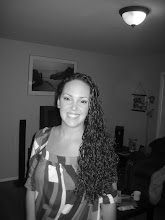What is a Critical Thinker? Are you a Critical Thinker?
In reviewing the books, “Thinking for Yourself” and “Critical Reading for College and Beyond,” which were used for this class, I would say that critical thinking has a longer, more complicated meaning than most think. There are many different parts to the meaning of a critical thinker. In the book, “Thinking for Yourself,” critical thinking is defined as bringing conscious awareness, skills, and standards to the process of observing, analyzing, reasoning, evaluating, reading, and communicating. There are a few standards of critical thinking outlined in this book as well. Those standards are clarity, completeness, precision, soundness, accuracy, reliability, relevance and fairness.
In this class, I would say that one part to critical thinking that stood out for me is to have an open mind and to allow your mind to think for yourself. Critical thinking to me is about analyzing what you read or hear. It is about asking questions and not just taking what you read or hear at face value. Critical thinking is the ability to combine your current knowledge to some new knowledge that was learned and make something new from it; like a new conclusion or your own conclusion. When you are an active critical thinker, you must be able to tell the difference between opinions and facts. You need to understand when inferences are being made as opposed to facts being told. I believe as a critical thinker, you should be able to listen to many different viewpoints and have an open mind and respect for those viewpoints, especially those different from your own. I think part of being a critical thinker is realizing that there are many different viewpoints in the world and having insight to those is powerful. Knowledge is power I believe.
When you are thinking critically, you should be able analyzing, synthesize, and evaluate information that you read or hear. When making arguments, you need to be able to think critically. A good argument is clear and truthful. It does not include fallacies and the voice of your argument should be soothing and smooth. When arguing a position you should be fair and address your opposition. In critical thinking you should use inductive or deductive reasoning. When providing information to others, you should make sure that you also provide enough supporting details/ supporting evidence.
Being a critical thinker is about having an open mind, understanding other viewpoints, asking questions, checking information for accuracy and completeness. You should make sure your sources are reliable and sound. Being a critical thinker is about being fair to others and fair to the information you read or hear or provide. Critical thinking is about being honest. It is not about being fallacious, although you must be able to detect fallacies. Fallacies are one aspect of critical thinking that was intriguing to me. I never knew there were so many fallacies out there. And the tricky part of a lot of fallacies is they are so easy to use without even realizing it. That is why part of critical thinking is having an open and conscious mind. You need to be aware of what is going on around you and in what you are reading.
I believe that after taking this course, I am well on my way to being a better critical thinker. I think that in taking this course, it helped to me be more aware of my inner critical thinker. And that is part of what critical thinking is about, in my opinion, is being more aware. I think some aspects of critical thinking may require more focus from me than others; for example, the ability to recognize inferences and assumptions as just that and not as facts. I think that is a tricky thing to do. I think that it is so easy to hear or read something, and because of previous knowledge, making an inference or assumption and taking that as fact. I think from here on out, I will try to be a better critical thinker. I will try to strengthen my critical thinking skills. I thought this class was very useful for each individual’s lives, if you take the information learned and apply it to your daily lives. And that is what I intend to do.
Saturday, May 2, 2009
Subscribe to:
Comments (Atom)
